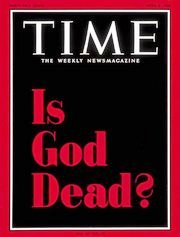Carl Sagan - on Science and Religion

This is one of the reasons that the organized religions do not inspire me with confidence. Which leaders of the major faiths acknowledge that their beliefs might be incomplete or erroneous and establish institutes to uncover possible doctrinal deficiencies? Beyond the test of everyday living, who is systematically testing the circumstances in which traditional religious teachings may no longer apply? (It is certainly conceivable that doctrines and ethics that may have worked fairly well in patriarchal or patristic or medieval times might be thoroughly invalid in the very different world we inhabit today.) What sermons even-handedly examine the God hypothesis? What rewards are religious skeptics given by the established religions —or, for that matter, social and economic skeptics by the society in which they swim?
Science, Ann Druyan notes, is forever whispering in our ears, "Remember, you're very new at this. You might be mistaken. You've been wrong before." Despite all the talk of humility, show me something comparable in religion. Scripture is said to be divinely inspired —a phrase with many meanings. But what if it's simply made up by fallible humans? Miracles are attested, but what if they're instead some mix of charlatanry, unfamiliar states of consciousness, misapprehensions of natural phenomena, and mental illness? No contemporary religion and no New Age belief seems to me to take sufficient account of the grandeur, magnificence, subtlety and intricacy of the Universe revealed by science. The fact that so little of the findings of modern science is prefigured in Scripture to my mind casts further doubt on its divine inspiration.
But of course I might be wrong.
